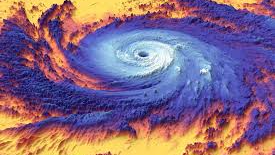

Bhubaneswar: The year 2024 has been recorded as the warmest year on record.
NASA Thursday released its biggest findings on increasing heat waves, global warming that heat up the oceans deep down to record thermal expansion.
The deep down heating up of oceans doesn’t augur well for the coastal states, as a warm ocean deeper would brew more extremely severe cyclones that would prove devastating for them.
Odisha has been witnessing regular severe to extremely severe cyclones since 2019 in pre and post monsoon season.
Along with NASA research, an Indian Institute of Tropical Meteorology (IITM) report reveals how scary will the future of coastal states, including Odisha, in India.
First, take a look at the NASA revelation.
NASA ON 2024 SEA LEVEL RISE
NASA said, “Last year’s increase in global sea level was due to an unusual amount of ocean warming, combined with melt water from land-based ice such as glaciers.”
Elaborating further, the global apex space agency said:
The NASA release quotes NASA Jet Propulsion Lab researcher Josh Willis.
He said, “The rise we saw in 2024 was higher than we expected. Every year is a little bit different, but what’s clear is that the ocean continues to rise, and the rate of rise is getting faster and faster.”
NASA FINDING DETAILS
NASA release quoted Nadya Vinogradova Shiffer, head of physical oceanography programs and the Integrated Earth System Observatory. She said:
“With 2024 as the warmest year on record, Earth’s expanding oceans are following suit, reaching their highest levels in three decades.”
NASA ARCHIVES
Since the satellite record of ocean height began in 1993, the rate of annual sea level rise has more than doubled. In total, global sea level has gone up by 4 inches (10 centimeters) since 1993.
NASA LESSONS ON SEA HEAT
There are several ways in which heat makes its way into the ocean, resulting in the thermal expansion of water.
IITM STUDY ON INDIAN OCEAN
A study led by Roxy Mathew Koll of the Indian Institute of Tropical Meteorology (IITM), Pune, has delved into the evolving climate of the Indian Ocean and its future projections. The study has interesting findings that seem scary for coastal states.